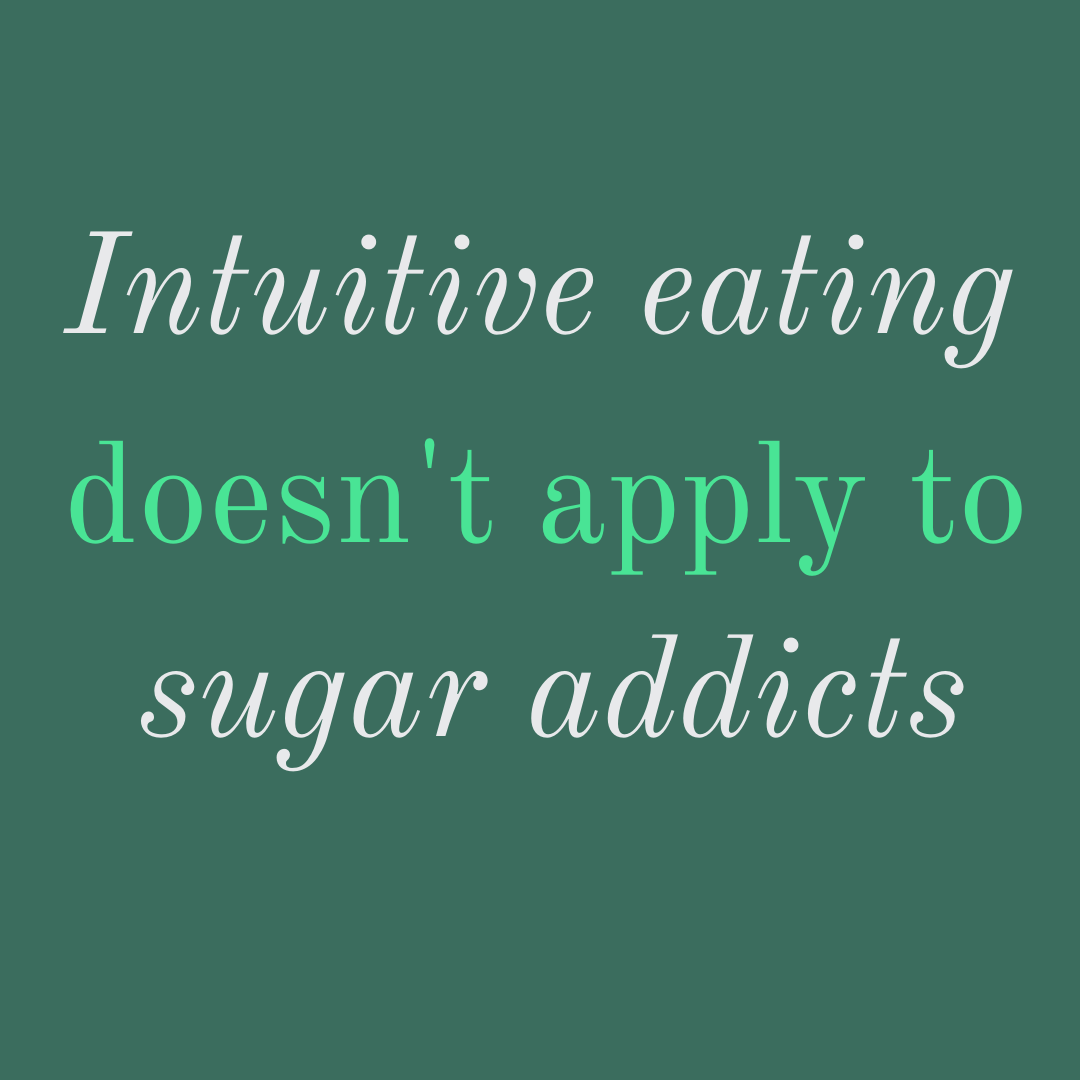|
With addiction (of any kind) the biochemical reward process has been hijacked, and us addicts cannot always trust or decipher the messages we receive regarding our hunger and satiety.
Many of us need to rely on external information to ensure we are getting appropriate nutrition. For some this may look like weighing and measuring our food, tracking meals in an app as well as monitoring our trigger foods very closely. For others it means strict planning and meal prepping, and then for others it includes checking in with a recovery buddy every time you eat. Another issue with intuitive eating is that it rejects the concept of "good" or "bad" foods. Unfortunately, in our highly processed food environment, there are absolutely "BAD" foods, and many are consuming them WAY too often. I do, however, believe there are some tools that we can pull from the intuitive eating concept. 1. Eat when you are hungry - don't ignore hunger pains until they overwhelm you because this will likely lead to overeating. If you have difficulty knowing when you're truly hungry, weighing and measuring may be a useful tool. 2.Choose (whole) foods that make you feel good. Eat real, whole foods that you enjoy, and don't force yourself to eat things that you don't enjoy 3. Respect Your Emotions - know that most of us have experienced times where we've eaten to satisfy emotions, but also know that food will never be able to truly address these emotions or fix the problems that created them. Intuitive eating is an interesting concept, but it definitely does not work for everyone, especially sugar/food addicts.
0 Comments
Leave a Reply. |
Archives
December 2023
This website uses marketing and tracking technologies. Opting out of this will opt you out of all cookies, except for those needed to run the website. Note that some products may not work as well without tracking cookies. Opt Out of Cookies |
|
© 2023 Rachel Murray Holistic Nutrition
|

